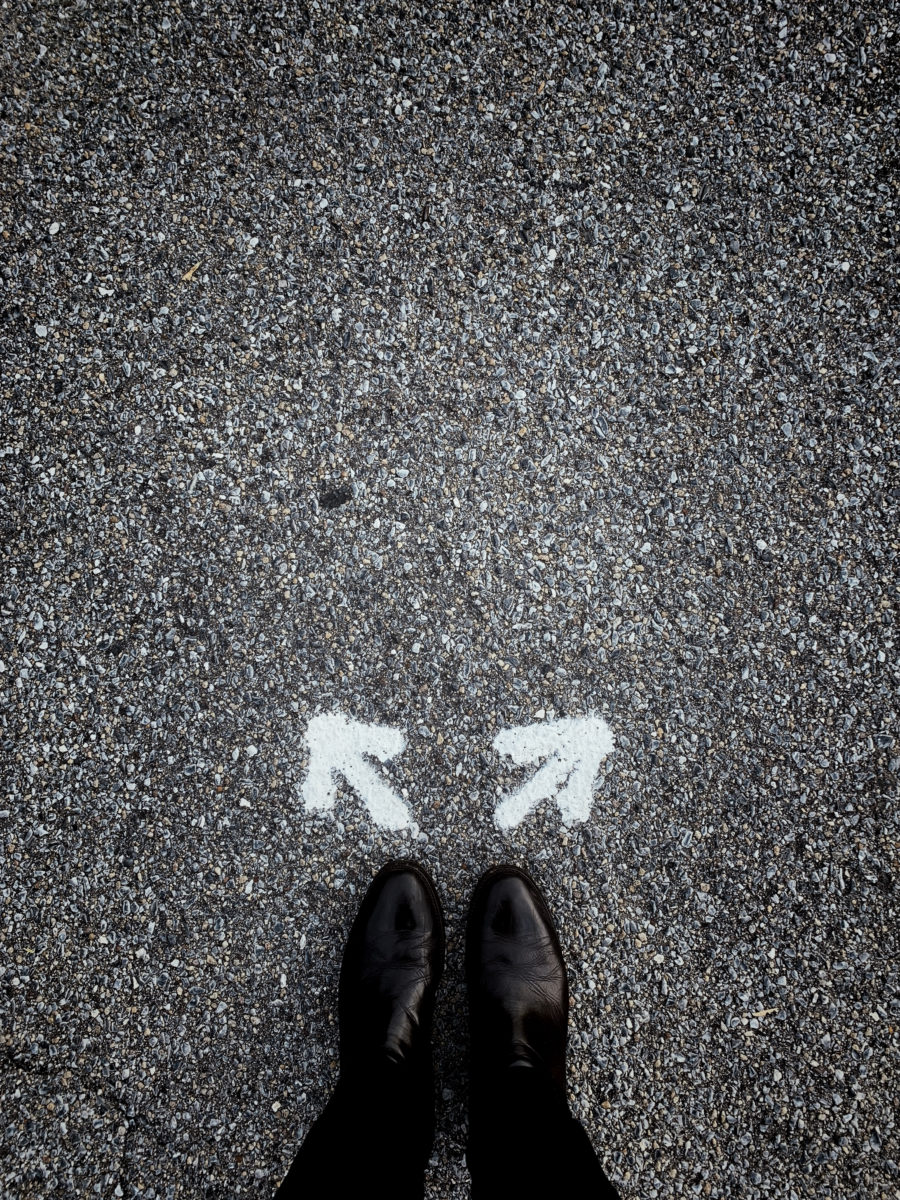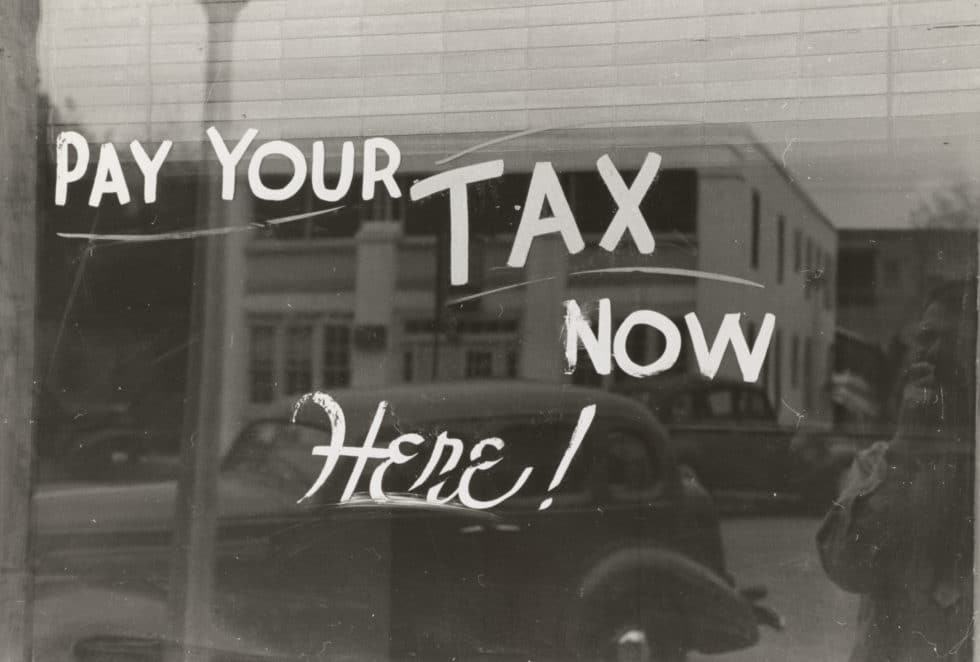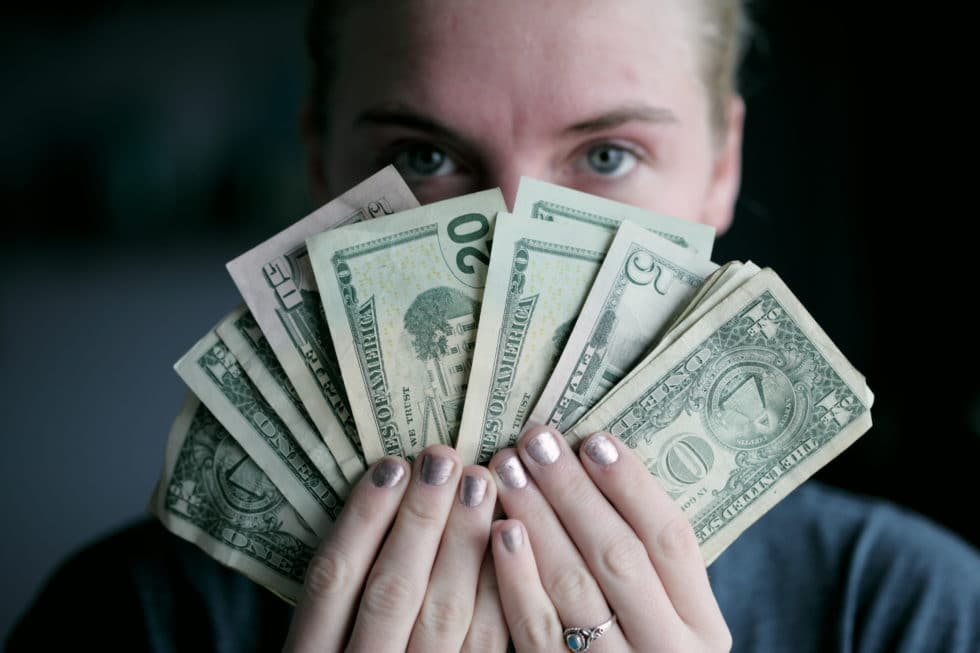Why it doesn’t matter which bank you’re at
To have ethical principles is a good thing and not for nothing one of the most important tasks one surely has to perform in education. Ethical or moral action has partly been anchored in us since childhood and can, of course, cover quite different aspects in everyday life. The topic of sustainability, which has become an essential topic for younger generations, also plays an important role. In everyday life you can act quite well in the sense of sustainability, use returnable bottles, less plastic, try to pay attention to production, origin and packaging material when shopping, compensate for CO2 emissions, etc.
These are all extremely important decisions you have to make in everyday life. Let’s take the subject of banking and the decision you have made at some point, or make when you choose a particular bank. Because actually everyone who has something to do with this industry knows: with the choice of your bank you may support the very best branches of business and industries with less ethical backgrounds, and this even unintentionally. But from the beginning: Why are some banks ethical and some not? Conventional retail banks not only store and manage your money, they also take it and invest it in various industries.

So your money works while it’s just lying around in the bank, how it works, it’s not up to you, it’s up to your bank and in most cases it passes us all by.
There are many things in the portfolio of one or the other bank that one would probably not find so great due to ethical principles and general consensus. From the arms industry to animal testing, genetic engineering or the gambling industry to nuclear or coal power, the food industry or business relations with corrupt regimes, all these are areas that can benefit from the money of the respective banks.
In return, an alternative or ethical bank has certain exclusion criteria in its statutes that only allow transactions and investments with ethical and environmentally sound companies. The lending process is also based on ecological, social and ethical criteria, i.e. only companies that comply with these ethical principles receive a loan from the bank. Investments are also subject to qualitative and ethical controls.
How do I know a bank is ethical?

There are of course various reasons why banks act as alternatives. There are some banks that base their business model on purely Christian values. Especially many alternative banks in Austria are of Christian origin. Whether this is the better approach remains to be seen. Some banks focus on anthroposophical approaches. German “ethics banks” focus above all on the environmental aspect.
How do I know a bank is ethical? The answer is unfortunately not as easy as it should be.. Here it behaves similarly as with the not protected and very inflationarily used term: bio! Especially when it comes to the fact that ethical banks based in Germany pursue a sustainability aspect, but this concept is not protected and can be used as a label by anyone without adhering to actual standards, qualitative security is difficult to prove. Also, many financial products or Fintech/Start-ups now advertise or flirt with the label “Sustainable”, but on closer inspection they or they are not at all. In Germany alone, these are not inconsiderably few.
As a consumer you are stuck, because even if you think to have made a good and right decision with the choice of the bank or the product in order to have your own money managed or invested ethically and sustainably, you first have to be aware of a number of criteria to check. But what criteria does a bank or a financial institution have as clearly sustainable or ethical? If there is something to hide, then it will be done in the bottom corner or in the really small print.
Your own sustainability report is then usually hidden somewhere at the bottom or only via the search function. After all, every bank regularly prepares a sustainability report, also known as a “non-financial report”. The Sustainability Report is a further development of the Environmental Report published in the 1990s by companies, but also by public institutions, and presents the activities and achievements of organisations with regard to sustainable development. It deals with the most important areas of sustainability: economy, ecology and social issues (Triple Bottom Line).

Part of information policy
With economy This is, for example, the orientation of the company towards the future. At the ecology – mainly in the manufacturing and processing industries – emphasises the sustainable focus on resource efficiency and environmental protection. With the social Topics are, for example, the company’s focus on a family-friendly business, the support of employees in difficult personal situations and social criteria in procurement (e.g. fair trade, measures against child labour in the upstream chain).
In addition to the annual report, the sustainability report is an important component of the company’s information policy. In the meantime, large companies in all sectors, in particular, are publishing annual reports – some of which are based on the guidelines of the Global Reporting Initiative (GRI) – such reports. In addition to the guidelines of the GRI, there are now numerous other standards, such as the ten principles of the UN Global Compacts. These standards partly overlap in content, but have different focuses on the different aspects of sustainability.
Of course, it is the company’s own definition that they describe as sustainable. And that can be a lot at first and does not have to have a particularly strict award. One should look as a consumer whether the bank or the enterprise has a ?negative catalog?, which shows which industries fall out clearly in the support, which however not only the bad things sorts out but actively endeavors to direct your money actively into positive contexts.
“The consumer should check whether the company is actively trying to steer the money into positive contexts.”
If a company communicates this with an open visor, then this is a plus point per se. Ethical or clearly sustainable banks are better at this and naturally make it their goal to disclose the process, according to which criteria sustainable banking is defined for them and in which industries it is invested. In the best case there is even an external committee or advisory board which helps the bank to comply with all defined standards.
Paradigm shift underway
Why then do not all banks act equally? Because no bank wants to write itself nevertheless on the flag to finance wars with your money. Here it becomes a little more complicated and here we must certainly speak of a transition from the old to the new world – a paradigm shift that is taking place in generation X,Y,Z and which demands a new ecological, social and more responsible consciousness. But a few years ago it was simply not important for the majority of customers or consumers to take a close look or no necessity was seen in it. Also, sustainable alternatives are often still represented in the minority.
And from an economic point of view, it was also easier for the respective bank to siphon off the value chain more profitably and certainly much more efficiently than to redirect it to a sustainable aspect and at the same time meet all the important criteria, since it was easy to externalise the costs. Negative footprints could and still can be pushed away from you, whether you redirect the contaminated waste water somewhere or employees get a starvation wage through subcontractors, as long as nobody looks closely, you can earn good money without it falling back on you and although your own value chain looks rather creepy.

If you leave the ethos aside, you can still make a lot of money. The best example is the Cum-Ex affair, which cost the tax authorities over 30 billion euros and where major European banks stole these billions from the German taxpayer. One or the other has earned quite a lot with it.
In this example you can see very well that the financial sector is sitting on very big levers, you can transfer billions from A to B in seconds and if you don’t question where some money is being directed or what values are the engine, others can really make a lot of money with it.
These mechanisms still drive this whole industry too far and there are few exceptions in this system that see finance as an opportunity to embrace positive change and see money as part of the solution. In recent decades, however, some companies have decided to go down this road, but they are still the exception and are attempting to use this great lever in the right direction.
Challenge for the customer
The problem is that many large banks, for example, allow such empty purchases as were the case with Cum-Ex, i.e. conventional banks not only invest in often questionable businesses and industries, they also allow such tax tricks that move in a more or less legal grey area. So if conventional banks draw some of their returns from this, what do ethical banks live on and how do they finance themselves? Partially, of course, through account management fees and, of course, through investments, but they use their ethical principle as a filter to exclude certain industries and channel money into good and sustainable industries and investments.
Clients of an ethical bank can invest their money in sustainable funds, for example, which in turn also invest according to certain ethical criteria and often have a certified label. It is not always easy for the layman and the average consumer to recognise such investments. In Germany, for example, there is the FNG label, the EcoReporter seal or the Climatmatrix climate rating, all of which are so-called ESG labels that stand for Environmental Social Governance and describe the extent to which ethical, social and economic criteria are observed. These ESG standards, however, provide only a rough orientation so far. In Germany, investments in nuclear power are considered unsustainable; in France, on the other hand, they are considered unsustainable because they produce very little CO2 technically. This means that each country has established its own labels and standards and there is no uniform certification for sustainable capital investments to date. However, the EU Commission already has this in mind and wants to introduce a European standard for “green bonds”.
Is there any money in it?
Yes, you can. Consumers can also earn money with sustainable and strict ethical criteria and do not even have to fear for lower interest rates. Because it is not about either or: either to do something good or to earn money, meanwhile both are possible. Moreover, it does not even have to be more expensive to go to a sustainable or alternative bank. Ethical banks also have a cost burden that is usually even greater than that of conventional banks.

Processes such as the exclusion of negative industries (weapons, mass animal husbandry, coal and nuclear power) or the review of the STC alignment, i.e. whether a company or a financial product really makes a positive contribution to the Sustainable Development Goals of the United Nations, the initiation of an ESG screening to see what ethical, ecological and social balance a company has plus the review of externals are all processes that are time-consuming and costly. This effort, however, does not necessarily have to be reflected in the costs passed on to the customer, only shows that the people who sit at an ethical bank may be 2-3 more worried about your money. Studies also show that investing in sustainable funds does not necessarily yield less return. On the contrary, in most cases it is even better with certainty but equally good.
The past has made it clear that listed companies such as Bayer, VW or RWE in particular have a clear lack of ethics and values. You have thus clearly driven many business units up against the wall. Because it is the consumer, the public and ultimately the financial market who punish Bayer for taking on someone like Monsanto. Or if VW cheats on its customers for years, it is not ethical and harms the company.
Leaner branch network
Trust, good values, open and positive sustainable goals with foresight pay off in a positive return. In addition, alternative and sustainable banks have a much leaner branch network up to no branch, no bank advisors and only online advice to save costs. Opening an account is also easy online. And of course there are them, the exceptions and the banks that this may not be exemplary but have already to do really, really well.
“Trust, good values and sustainable goals with foresight pay off in a positive return.”
And the moral of the story: You can indeed do something good with your money without really having to do anything for it, you can even improve the common good with your money. Money has now become a means and an end, we take money into our hands to earn even more money, but if my money is the means and the common good the end, then my money can work for me and I even have a good feeling about it. Money is not a bad thing, no matter how much of it you have, we just have to learn how to deal with it – and invest in good, sustainable and meaningful projects.
You can find more information here: https://www.fairfinanceguide.de/